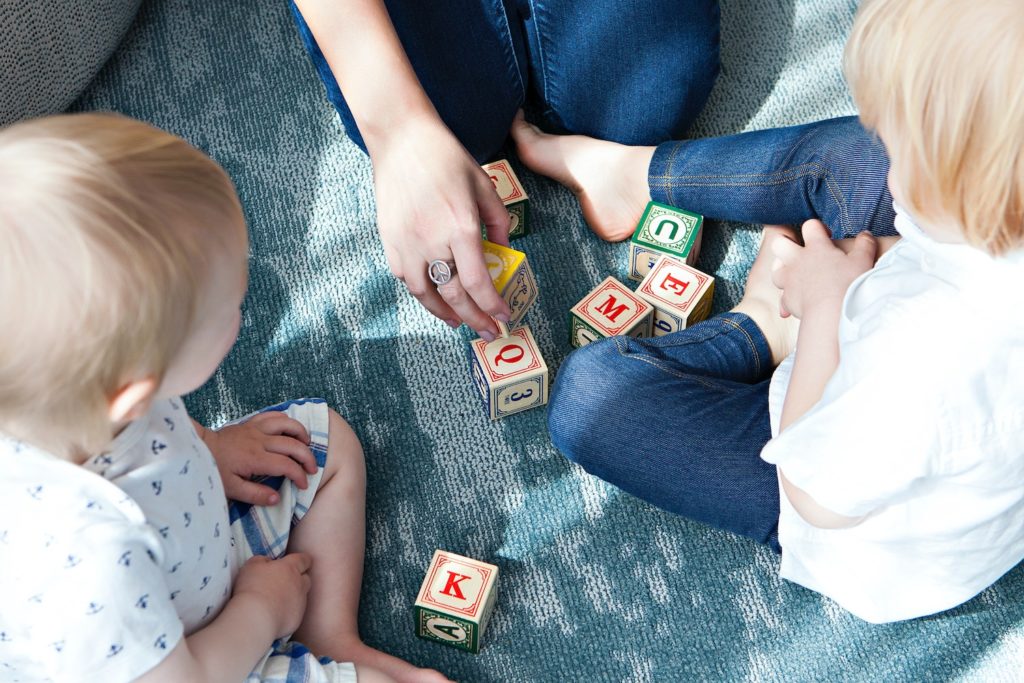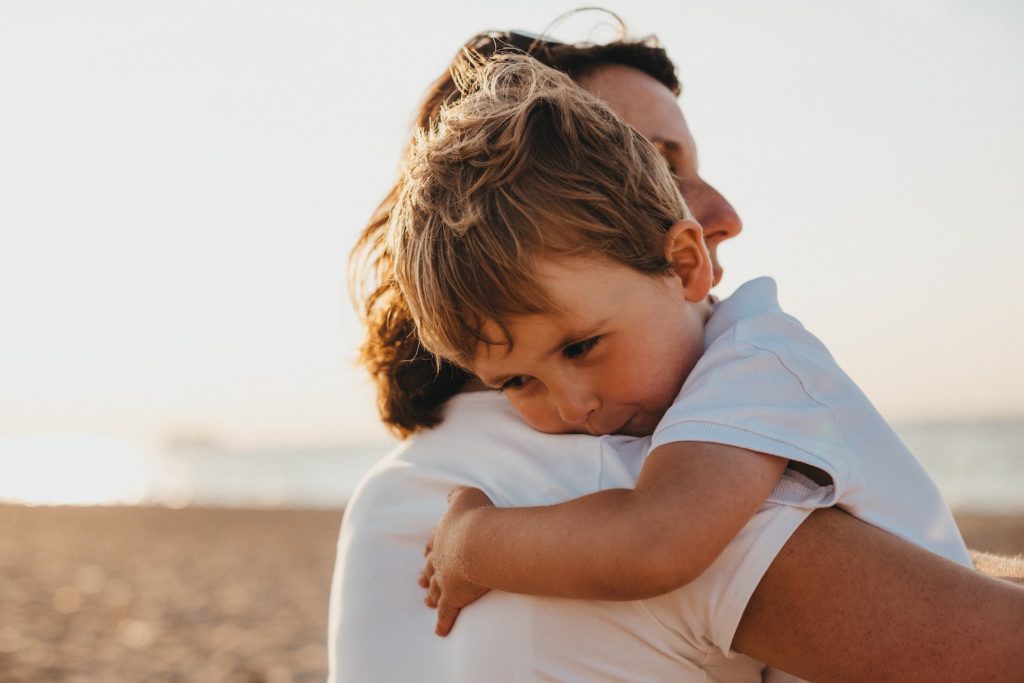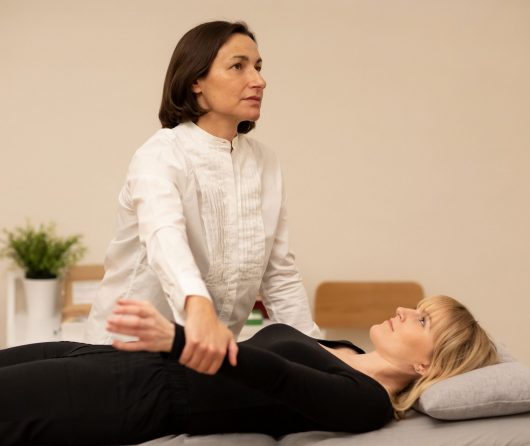
Systematic Kinesiology offers supportive techniques and simple lifestyle/communication suggestions for big changes including becoming and being a parent.
As well as being the principal of TASK, I am a mother to 4 wonderful children aged 33, 30, 18 and 17 Did I always get it right? Absolutely not. However, Systematic Kinesiology has helped me through motherhood and to be a better parent. I don’t know how people parent without it.
My journey as a mother began at 23 years old and I knew nothing about being a parent other than my own experience with my parents. We are not taught anything about having children other than in biology. We are left to our subconscious learning from our own childhoods, plus trial and error.
Getting most things right
As parents, hopefully we feel we are getting most things right. Validating what is working for us, our children and our family is important. However, we may also need help in some areas and wish to learn new skills to move forward in new ways breaking any negative patterns or behaviours which can be hugely rewarding, encouraging and empowering for everyone.
Children learn from us
Our children learn from our words, tone and affection (touch) although interestingly, most of all from our body language. Including, tiny facial expressions and energetically picking up what we are thinking! Thoughts are energy and children are great at reading that energy.
If we are saying, “Well done that drawing is lovely” and we are not really attentively looking and feeling it, children will know and feel the discord. If we say we are fine when we are not, they will know. They are learning from watching us – our behaviour, our interactions with family members and the outside world. This all starts to happen in the womb, a newborn baby can recognise words and they understand more than we think they do. Physical affection makes a difference to the shape of a baby’s brain and how it is wired.
The formative years
We may have heard the term formative years, meaning the years that form us as a person. The main learning is done by 7 years old. It’s fascinating to understand that most of what a boy learns will be through his mother and most of what a girl learns will be through her father. This learning includes how we feel about ourselves, how we react to situations, also how we perceive and behave towards ourselves, others and the world around us.
- 0-3 years – The supercharged main absorption period where the child’s brain is a sponge, soaking up vast amounts of information and knowledge through all their senses from their parents/caregivers and environment.
- 3-7 years – The learning period is huge and whether it be positive or negative experiences or behaviours these can become set in. Mainly learned from parents/caregivers, teachers and siblings.
- 7-14 years – A highly influential time, where children are still learning from parents/caregivers although this can also be where peers, teachers and outside influences may have a big impact on your child.
What do our children need?

1. LOVE
Above all, children need to be and feel loved. Feeling safe with and around their parents is huge as is feeling understood. If our child feels loved, safe and understood it has a profound positive effect on their developing brain.
Children need us to be present parents as we are their world.
They need consistency, not only each parent being consistent with their love, communication, actions, responses, discipline, boundaries and care, but also both parents being consistent and supportive with and to each other.
- Feeling unsafe can produce fear, anxiety and other negative behaviours.
- Feeling unloved can produce sadness and a lack of self-worth.
- Feeling misunderstood can produce frustration and anger.
As parents, the last thing we want is our child to feel any of the above. However, we can do this accidentally.
For example, if they see us fearful, stressed and in a state of anxiety, they may well feel unsafe and learn to feel this way themselves. If they see us putting our jobs, hobbies, other relationships and even phones/screen time first (before them) they may feel unimportant and even unloved. If we dismiss their feelings as ‘silly’, assume or tell them how they are feeling rather than asking them, they may well feel we just don’t understand.
Understanding ourselves and our children on a deeper level is key to being a better parent.
2. Boundaries
A lack of healthy boundaries can also make our child feel unsafe, unloved and misunderstood.
Boundaries around what behaviours are acceptable and what behaviours are not, and are consistent, are healthy.
Boundaries on choice. VERY limited choices are suggested for those under the age of 5 years old. A toddler/young child does not know best about how to look after him/herself. If children are given endless choices they can feel incredibly overwhelmed, unsafe and be anxious about making those decisions.
The more choice we give, asking our child questions about their self-care, the more they feel that we can’t take care of them which is scary. A sign of this is when our child becomes agitated, challenging and non-compliant. For instance – “Do you want to go to bed?” “Do you want to put your coat on?” “Where do you want to go?” “What do you want to eat?” It’s all too much and overwhelming for the child as they don’t have the knowledge to make the right decisions for themselves and on a deep level, they know that.
The answer to most of the questions above will be no and then as parents, we may feel at a loss of what to do. Wide-open questions with endless possibilities like “what do you want to eat?” will be even scarier for the child and challenging for us because they will usually make unhealthy choices creating a pattern of fussy, picky, eating.
If we are going to offer our children a choice, then the this or that approach can work much better. Rather than asking where do you want to go? Asking, “Would you like to go to the park or swimming today?” is manageable. Only offering two options is better for your children and you.
3. Food
As parents, we know best when it comes to what food is good for our children and we need to KNOW they will eat it. If we doubt this (thoughts are energy and ripple out from us and the effects are felt) or give them any hint of a choice not to eat it, they may refuse what we have put in front of them.
Many parents find the royal ‘we’ works wonders with communicating boundaries. For example, we are going up to clean our teeth now, we are going to get our coats on, we are tidying up now, we are going up to bed, we do kindness in our family, we are having story time now etc. This gives the feeling of togetherness and is an instruction that does not feel like a command.
4. Kind understanding
Teasing and being sarcastic with children is sometimes thought to be fun.
It is not fun for our young child. It is very confusing and in my experience, can lead to humiliation, frustration, anger and even illness. For example, when my older two were young, we went to the park. There, we met a Dad from school by the climbing frame. He said to his daughter and my two who were around 6 years old at the time, “Quick. The first one up to the top of the climbing frame will get the chocolate bar!” My two raced up and my son got to the top first and shouted down “There’s no chocolate bar!”. The guy pointed up to him laughing about how he had believed him. My son was very confused, disappointed and humiliated. His daughter hadn’t even bothered to climb up and shouted “I knew there wouldn’t be any chocolate up there“. My son later asked me why the man did that?
What is that kind of behaviour teaching our children? Maybe…what I tell you is not true, or I make false promises, or making fun of people is fun and lying is ok?
A client came to see me with her 5-year-old who was going to be kept down a year as they had missed so much school due to a mystery illness that doctors were baffled with.
Every 3 weeks the child would get a very high temperature and need days off school. After many tests, they found nothing medically wrong with her but kept giving her prescribed antibiotics for an infection they couldn’t find.
The mother was lovely, friendly, and very concerned for her child. The child’s diet and routine were pretty good with not too much sugar. Like any issue within Systematic Kinesiology (SK) we go on to explore emotions. It turned out that they all liked teasing each other at home. I asked the Mum if her parents had teased her in that way. She said they had done it a lot, which she had hated at the time and thought she would never do this with her own children. BUT she forgot.
We can easily forget what happened to us as children because subconscious learning is so powerful. We can often accidentally repeat the behaviours of our parents even if we didn’t like it ourselves as a child. We talked and started to see and understand the pattern without guilt or blame to anyone. Mum was absolutely shocked and said there and then that all that teasing interaction would stop.
We now understood that all the teasing was not fun (even though the child copied and laughed and seemed to like it). We could see how the emotion was building up each month to make the child’s blood boil. With SK we addressed and supported the emotions and immune system which needed boosting. The mother took on board the suggestions and made huge changes at home. The child became well and no more temperatures.
A year or so later the Mum called up out of the blue to say how much she appreciated SK for changing their lives and shared how much happier they all were. Her child was not kept back a school year and also had not had a day off school since.
Emotions are not water off a duck’s back, they can cut deep, we can feel harpooned and be wounded.

Systematic Kinesiology can help with lifestyle, emotions and communication
Practitioners can suggest techniques that are fabulous to help, support and balance ourselves and our children. Having tools to cope better with our stress levels and lengthen our fuses for daily life is key.
Some SK techniques are:
- ESR (Emotional Stress Release) – Holding our hand over our own or our child’s forehead when we or they are upset or stressed is powerful and can help disperse the energy. Whilst holding this position we can also think or talk things through which is also hugely helpful. We can ask how we or they are feeling, or ask what they or we want to happen and maybe also what we or they are willing to do to make that happen. Holding the neuro-vascular points (to increase blood flow) over the forehead, allows blood to flood into the frontal lobes of the brain where we problem solve and use our rational to think situations through. It is also very calming and allows clarity to return.
- Cross crawl – An exercise to integrate the left and right sides of the brain which is calming. It pumps the lymph around, feeding and cleaning our bodies and helps accelerate learning. This is even more effective when performed on a rebounder (mini trampette) or a big trampoline. It is a fabulous exercise to do before school, homework and before bath and bed. It is also great for us if we feel tired and sluggish. All we need to do is take our right hand, then lift our left leg and touch the knee and then take our left hand and touch the right knee and repeat for a few minutes. See a video here.
- Ear unfurling – massaging our ears (as if we are trying to straighten them out) can be hugely helpful for both us and our children. If you think about the ear being like a satellite dish that needs switching on to get a good signal, this technique does this for our hearing enhancing our listening and retention skills.
- Lazy eights – help with writing. Our writing is literally an encephalogram of our brain. When we are stressed, upset, fearful or rushed, we may not even be able to read our own writing. This exercise helps to integrate the left and right sides of the brain enhancing our physical eye to hand coordination, which includes writing. Have a fresh piece of paper and keep the nose central. With a pen, draw the number 8 on its side, making sure you are going in the direction of UP through the middle. Follow the pen with your eyes only. Repeat tracing over and over the eight for a minute or two. We can make it fun for the kids with different colours, paints and also we can get creative. They could do it in sand or on a chalkboard. Writing will be easier and neater after this exercise. See video here.
- Bach flower remedies – these remedies from flowers of the British countryside were discovered by Dr Edward Bach who noticed that nature could mirror us and help to dissolve some negative emotions and also promote positive feelings. We can use these safely for ourselves and our children (please note: they are preserved in brandy so if there is an issue with alcohol, remedies using glycerine can be sourced) to help deal with emotions and also to help us change our or our children’s mindset positively. Just a few drops under the tongue or in some water can have a profound effect.
A few Bach suggestions:
- Elm for overwhelm
- Aspen for ‘what if’ worries
- Mimulus for current known fears
- Impatiens for irritability and mental tension
- Cherry plum for feeling out of control
- Agrimony for feeling pressured and putting on a brave face
- White chestnut for roundabout unwanted thoughts
- Larch for self-confidence and letting go
- Five flower remedy for any upsetting/challenging/shocking situation that you need urgent help with to feel differently now.
We have a colour card test for emotions and training available on our TASK website that taps into the subconscious with a chart recommending the particular remedies that we may need so you may wish to take a look.
I would also suggest anyone with children or thinking about having children reads ‘Why love matters’ by Sue Gerhardt. This amazing book takes us on a journey to understand ourselves better and the impact we can have on our children in both negative and positive ways.
If you would like to pursue SK for individual sessions for yourself, or your child, please
go to taskuknetwork.co.uk to find your nearest practitioner.
If you would like to train in Systematic Kinesiology and learn the above techniques and many more for self-help and to help loved ones then head to our Kinesiology Course Page.
One of the most important jobs in the world is to be a parent and there is no training apart from our own childhood unless we pursue it. If we attentively love respect and are emotionally available for our children we can help them develop into incredible human beings. They will have a better chance of leading happy lives because they love and understand themselves. Whilst difficult at times, parenting is so rewarding – we learn so much from children along the way if we allow ourselves to. Let’s be the change for our children.